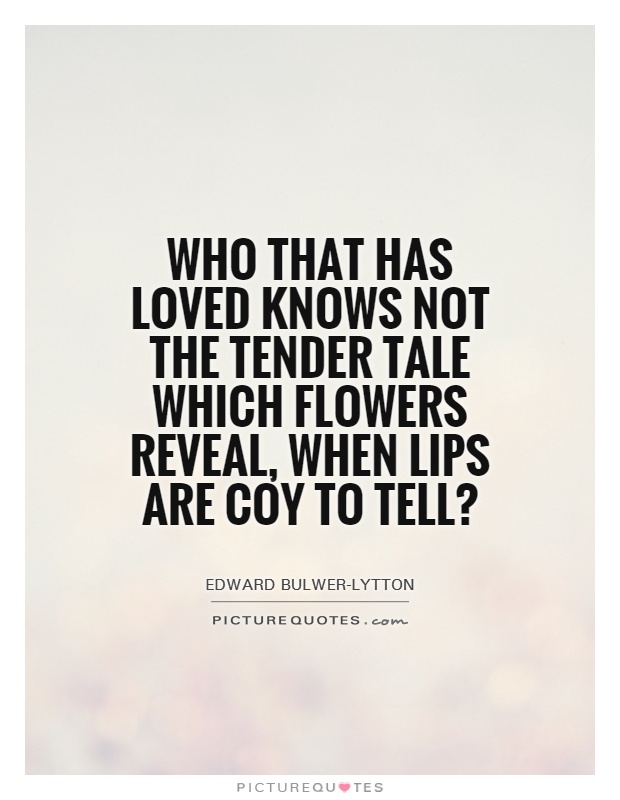Who that has loved knows not the tender tale Which flowers reveal, when lips are coy to tell?

Who that has loved knows not the tender tale Which flowers reveal, when lips are coy to tell?
Edward Bulwer-Lytton was a prolific writer and poet known for his romantic and sentimental works. The quote “Who that has loved knows not the tender tale Which flowers reveal, when lips are coy to tell?” perfectly encapsulates the essence of his writing style and themes.In many of his works, Bulwer-Lytton explores the complexities of love and the emotions that come with it. He often delves into the innermost thoughts and feelings of his characters, portraying their struggles and triumphs in matters of the heart. The quote speaks to the idea that sometimes words are not enough to express the depth of one’s feelings, and that nature itself can reveal the true emotions that lie within.
Bulwer-Lytton was a master at using vivid imagery and symbolism in his writing, and the mention of flowers in the quote is no exception. Flowers have long been associated with love and romance, and in Bulwer-Lytton’s works, they often serve as a metaphor for the beauty and fragility of love. The idea that flowers can reveal a “tender tale” that lips are “coy to tell” suggests that there are some emotions that are too deep and profound to be expressed in words alone.
Throughout his career, Bulwer-Lytton wrote numerous novels, plays, and poems that explored the complexities of human relationships and the power of love. His works often featured passionate and dramatic love stories, filled with longing, heartbreak, and redemption. The quote reflects his belief in the transformative power of love, and the idea that it can bring out the best in people, even in the face of adversity.












 Friendship Quotes
Friendship Quotes Love Quotes
Love Quotes Life Quotes
Life Quotes Funny Quotes
Funny Quotes Motivational Quotes
Motivational Quotes Inspirational Quotes
Inspirational Quotes